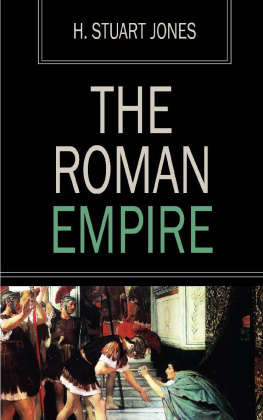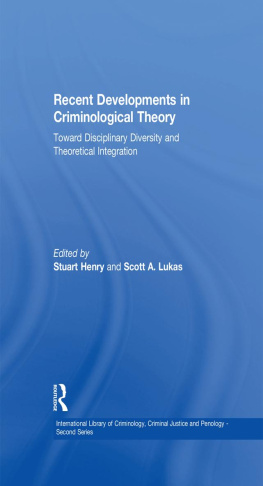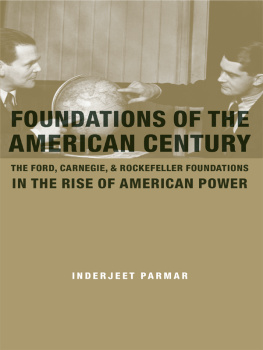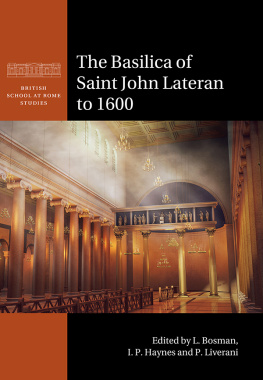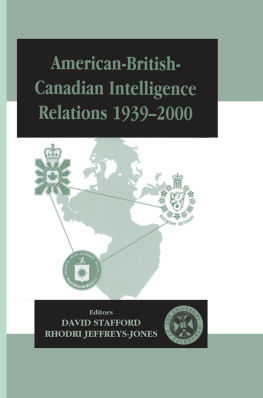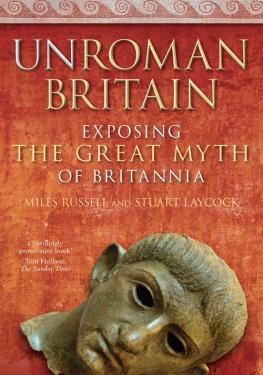Henry Stuart Jones - The Roman Empire
Here you can read online Henry Stuart Jones - The Roman Empire full text of the book (entire story) in english for free. Download pdf and epub, get meaning, cover and reviews about this ebook. year: 2016, publisher: Ozymandias Press, genre: History. Description of the work, (preface) as well as reviews are available. Best literature library LitArk.com created for fans of good reading and offers a wide selection of genres:
Romance novel
Science fiction
Adventure
Detective
Science
History
Home and family
Prose
Art
Politics
Computer
Non-fiction
Religion
Business
Children
Humor
Choose a favorite category and find really read worthwhile books. Enjoy immersion in the world of imagination, feel the emotions of the characters or learn something new for yourself, make an fascinating discovery.
- Book:The Roman Empire
- Author:
- Publisher:Ozymandias Press
- Genre:
- Year:2016
- Rating:5 / 5
- Favourites:Add to favourites
- Your mark:
- 100
- 1
- 2
- 3
- 4
- 5
The Roman Empire: summary, description and annotation
We offer to read an annotation, description, summary or preface (depends on what the author of the book "The Roman Empire" wrote himself). If you haven't found the necessary information about the book — write in the comments, we will try to find it.
The Roman Empire — read online for free the complete book (whole text) full work
Below is the text of the book, divided by pages. System saving the place of the last page read, allows you to conveniently read the book "The Roman Empire" online for free, without having to search again every time where you left off. Put a bookmark, and you can go to the page where you finished reading at any time.
Font size:
Interval:
Bookmark:
ON THE THIRTEENTH OF AUGUST, B.C. 29, and the two following days, almost two years after the victory of Actium, Augustus celebrated the triple triumph which proclaimed the subjection of three continents. On the first day a train of Gallic and Illyrian captives marched behind the conqueror; on the second the beaks of Antonys ships were borne in procession, and some Asiatic potentates who had been his allies were led in golden chains; the climax was reached in the African triumph, graced by Cleopatras two children the last of the Ptolemies and the priceless spoils of Egypt. The scene recalled the quadruple triumph of the great Dictator, celebrated seventeen years before; but the Romans were spared the humiliation of seeing their fellow-citizens amongst the captives. Yet it was noted that the fellow- magistrates of Augustus, instead of leading the procession according to custom, followed in his train. In name the first citizen of a Republic, he was in reality the undisputed master of the Roman world, already worshipped as God incarnate by Greeks and Orientals, reigning over Egypt as the legitimate successor of the Pharaohs and the Ptolemies, and, above all, commanding the sworn allegiance of at least 300,000 soldiers.
Three days later the round of ceremonies was closed by the dedication of the temple of the Divine Julius, and men began to ask themselves what form of government it would please his successor to establish. The answer was not given at once. Augustus was a man of very different mould from the Dictator. Lacking his commanding genius, he possessed the infinite tact and patience which succeed where genius fails. Secure in his own grasp of realities, he knew that men are ruled by imagination and cannot be moulded like the potters clay. Julius Caesar had treated the forms of the Republican constitution with scarcely veiled contempt, and had shown clearly that his aim was to efface the traditions of 460 years and restore the monarchy. Augustus had no mind to repeat the mistake which had cost the Dictator his life. He saw that the great traditions of the all-conquering Republic formed an inheritance of which Rome would not be robbed, and that only by cherishing them could he command the services of the ablest men without destroying their self-respect. He determined, therefore, that his government should be a monarchy without a king. In the meanwhile he continued to exercise the extra-constitutional and practically unlimited powers originally conferred by the Roman people on himself, Antony, and Lepidus, in B.C. 43, as triumviri reipublicae constituendae. Antony was now dead, Lepidus a prisoner in exile; Augustus concentrated in himself the authority of the state. In B.C. 36, moreover, he had received the tribunicia potestas for life, after the precedent of the Dictator Julius; that is to say, he enjoyed personal sacrosanctity, an unlimited power of veto, and the prestige of a democratic magistracy created for the protection of the peoples rights. Finally, he was year by year elected consul; and it is probable that in the years 29 and 28 B.C. he was careful to perform his public acts, so far as possible, in virtue of this constitutional office.
In 28 B.C. the, foundations of the new government were laid. Augustus colleague in the consulship was Marcus Vipsanius. Agrippa, the general who had won most of his battles and his most trusted friend. The powers of the censorship, which in constitutional theory were inherent in the consuls, were called into action. On this occasion the most important censorial function was the lectio senatus, or revision of the roll of the Senate. The name of Augustus was inscribed at the head of the roll, and he thus acquired the honorary title of princeps senatus, a fact which contributed its share of meaning to the wider application of the term princeps. The Senate was purged of unworthy elements, almost two hundred of its members being struck off the roll; its social prestige was thus restored, and it was fitted to become once more an instrument of government. In the same year Augustus annulled the unconstitutional acts of the triumvirs, and, finally, on January 13, 27 B.C., he divested himself of his extraordinary powers and as the act was officially described restored the Republic. The day was celebrated as a festival in the Roman Calendar, and coins were struck which designated Augustus champion of the liberties of the Roman people. But on the day which saw those liberties restored, they were resigned once and for all into the hands of their restorer.
By a decree of Senate and people Augustus was immediately invested with powers which were not indeed singly lacking in constitutional precedent, but were sufficient to make him supreme ruler of the state, although the nominal independence of the Republic and its governing body, the Senate, was retained. Under the Republic Rome had been ruled by yearly magistrates, invested with coordinate authority, whose departments ( provinciae ) were only in part specialised; and when she became mistress of the Mediterranean basin the system was only modified by the creation of fresh provinciae in the new sense of oversea territories in which magistrates exercised the imperium, or supreme military and civil authority, without being subject to the checks and limitations imposed upon it in Rome. In practice these territories were not governed in any true sense, but merely exploited by an oligarchic clique, whose distribution of the spoils was strictly determined by custom, until they became the base of operations conducted by able and ambitious military leaders, the greatest of whom finally overthrew the Republic. In this period the dormant sovereignty of the people was revived in the interest of the military commanders, upon whom powers far transcending the normal share of a member of the senatorial ring were conferred. Augustus could therefore appeal to precedent when, being already consul and thus chief magistrate in Rome and Italy, he further received at the peoples hands a provincia embracing practically all those external possessions of the Roman people which contained military garrisons a ring of frontier territories encircling the lands where no troops were needed and thus became commander-in-chief of the army. This left a number of provinciae which the Senate could apportion to its members: two of these governorships Asia and Africa were of considerable importance, and the latter for some time even carried with it the independent command of a legion. Nevertheless, Augustus as consul possessed a higher degree of imperium than his senatorial colleagues, so that no conflict of authority was ultimately possible.
Other prerogatives and distinctions were conferred upon Augustus by special enactments. But the essence of his authority is to be sought in the unbroken tenure of the imperium exercised in a provincia incomparably wider than those of his colleagues, supplemented by the tribunicia potestas to which reference has already been made. In B.C. 23 the Principate as the new constitution is most conveniently termed received its permanent shape. In that year Augustus resigned the consulship, which he had held for nine years in succession. In the provinces assigned to him he continued to exercise his authority pro consule, as the Romans expressed it; but he gave up the pre-eminence in Rome and Italy which belonged to the consuls, and special enactments were passed to remedy this defect. Henceforth, moreover, he laid greater stress on the tribunicia polestas, which was annually numbered, and became the basis of dating. Finally, it is to be noted that these powers were conferred upon Augustus for a limited period of time, and formally renewed at intervals of five, and afterwards of ten years.
Font size:
Interval:
Bookmark:
Similar books «The Roman Empire»
Look at similar books to The Roman Empire. We have selected literature similar in name and meaning in the hope of providing readers with more options to find new, interesting, not yet read works.
Discussion, reviews of the book The Roman Empire and just readers' own opinions. Leave your comments, write what you think about the work, its meaning or the main characters. Specify what exactly you liked and what you didn't like, and why you think so.

